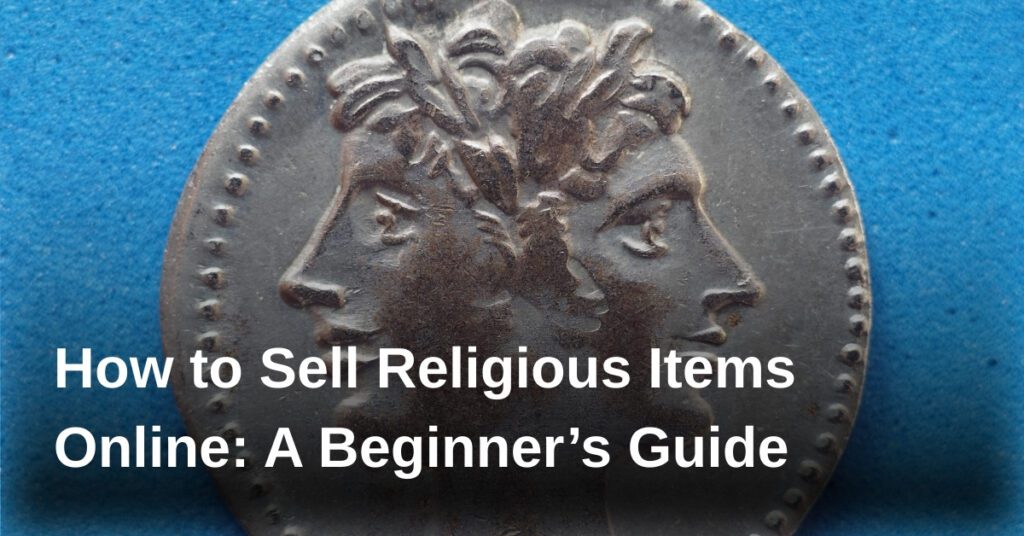
Understanding the Market for Religious Items Online
The online marketplace for religious goods has grown steadily in recent years, attracting both collectors and individuals seeking items for personal devotion. Many choose to Sell religious items through digital platforms because of their broad reach, although some do question whether this channel can always capture the full meaning attached to sacred objects. Sellers often wonder how to sell religious items in a way that honors tradition while meeting modern consumer expectations. Items that typically perform well include artifacts, devotional books, liturgical materials, and symbolic jewelry. However, unique locally crafted products also find passionate buyers, albeit with slightly unpredictable demand. Those aiming to sell religious items online need to consider a few essentials:
- Authenticity: buyers value genuine, well-documented pieces.
- Description: clear details and photos build trust.
- Cultural sensitivity: respect for faith traditions is crucial.
In summary, understanding this market means balancing reverence, honesty, and a genuine sense of connection with each sale.
You Can Also Review These:
Create an Online Religious Items Store | Reach Customers Globally
Choosing the Right E-commerce Platform for Your Religious Products
Selecting an e-commerce platform to sell religious items can be both exciting and slightly perplexing. Factors like user-friendliness, payment security, and customization options all play substantial roles, yet not every platform will suit your unique business needs. For example, some platforms may offer robust inventory controls but lack specific features to build trust with buyers seeking sacred objects. Therefore, consider whether your chosen platform supports detailed product descriptions and customer reviews, which can lend credibility when you sell religious items online. Additionally, you might value options for multi-language support or integration with community forums, even if these features seem secondary at first. Still, balancing cost with functionality is crucial; unfortunately, more features sometimes mean higher fees. Be mindful of how smoothly your store can scale if your ambition is to sell religious items to a broader audience in the future.
Curating and Sourcing Authentic Religious Items for Sale
When you aim to sell religious items, the first crucial step often centres around authenticity. Collectors and practitioners alike appreciate pieces that reflect genuine tradition, but defining “authentic” can be complex. Some believe it lies in age or origin, whereas others focus on a spiritual lineage. Therefore, building relationships with trusted artisans and suppliers becomes essential. Many sellers visit local workshops, temples, or markets, searching for objects that instinctively feel right. Sell religious items often require documentation or stories tracing back to their roots, although not every sacred item has a clear journey. Nevertheless, establishing a standard for quality reassures both new enthusiasts and serious collectors. Transparency matters, especially when cultural significance enters the picture. Hence, those who sell religious items tend to blend research with intuition, ensuring their offerings hold genuine value. Sourcing can be unpredictable; still, each piece tells its own quiet story, waiting to be discovered.
Creating Compelling Product Listings That Attract Faith-Based Customers
To genuinely Sell religious items online, your product listings should do more than just describe what is for sale. Faith-based customers often seek authenticity and meaning in every purchase. Therefore, it helps to share the story or deeper significance behind each piece. For example, mentioning traditional origins or intended spiritual use can gently guide buyers toward a more personal connection. A warm, respectful tone works best, especially when discussing beliefs or customs. Strong, clear images are equally important—show various angles, close-ups, and context shots to reflect quality and detail. Additionally, consider using thoughtful titles and descriptions that gently reference their Sell religious items purpose without overstatement. Including care instructions or blessings might also be helpful, yet how much detail is ideal may sometimes depend on your audience’s preferences. Above all, balance information and inspiration, as this approach subtly invites trust and encourages faith-based shoppers to return.
- Storytelling: explain the faith tradition or symbolism.
- High-quality photos: show product details and context.
- Sensitive language: respect diverse beliefs and practices.
Setting Competitive Pricing Strategies for Religious Merchandise
Establishing a thoughtful strategy to Sell religious items starts with understanding your audience and the unique attributes they value. Pricing is a sensitive factor—customers often expect sincerity and authenticity rather than aggressive commercial tactics. Therefore, price points should reflect both the spiritual value and the quality of the merchandise. Comparative market analysis can be helpful, yet it only tells part of the story. Because some shoppers might favor symbolic significance over material perfection, flexibility matters. It may be wise to feature bundled offers or discounts during religious seasons to gently encourage buyers to Sell religious items and foster loyalty. Still, undercutting the market could devalue your message. Additionally, transparency and fairness in your pricing approach add a sense of trust, especially for those who Sell religious items as part of their spiritual journey. A well-balanced strategy invites participation without losing sight of authenticity or purpose.
Optimising Your Online Store for Search Engines (SEO)
When you’re looking to Sell religious items online, the visibility of your store in search engine results can make or break your sales. Start by ensuring your website features clear, descriptive Sell religious items titles and meta descriptions. These elements help search engines understand your products a little better, but sometimes, specifics like alt attributes or structured data can also give you an edge. It’s important, however, not to overuse keywords—balance remains crucial. Think about your category and product pages; each should focus on unique content so Google doesn’t see them as duplicate. Internal links can subtly guide customers as they browse, boosting both SEO and user experience. According to many experts, “Effective SEO isn’t immediate; it requires patience and regular fine-tuning.” Regularly updating product descriptions, images, and blog content can keep your site fresh—this encourages both visitors and search engines to return.
Leveraging Social Media to Reach Devout Audiences
In today’s interconnected world, social media plays a pivotal role for those who want to sell religious items. Platforms like Facebook, Instagram, and Twitter offer unique opportunities to engage with audiences seeking faith-based products. However, finding the right tone and message is crucial; what works for mainstream products may not resonate as deeply with devout communities. Therefore, it’s important to focus on authenticity and respect when promoting your sell religious items business online. Consider these approaches:
- Storytelling: Share meaningful backgrounds about sell religious items to foster a sense of connection.
- Community Involvement: Highlight local events or causes to show genuine commitment.
- Interactive Content: Use polls, questions, or testimonials that spark thoughtful engagement.
Although results might not appear instantly, consistent efforts and tailored content can gradually build trust. Still, monitoring feedback is essential to adjust strategies accordingly.
Managing Shipping and Handling for Sacred and Fragile Items
Properly managing shipping and handling is vital when you Sell religious items, especially those considered sacred or inherently fragile. There’s always a balance between safeguarding these treasures and ensuring timely delivery. It is generally recommended to use robust, cushioned packaging and clear labeling, yet, sometimes individual requirements differ. For example, items like hand-painted icons or intricately carved statues may demand specialized wrapping to prevent subtle damage. Additionally, always verify that the chosen shipping provider has experience with sensitive goods. Sellers who Sell religious items often suggest insurance and tracking, especially for international consignments, because delays and mishandling rarely occur but can be distressing. Temperature control can also become a concern, particularly for items made of candle wax or delicate textiles. Although no system is entirely foolproof, careful attention to each stage of the delivery process increases both safety and the recipient’s peace of mind.
Building Trust and Providing Exceptional Customer Service in Religious Retail
Establishing trust with customers is a crucial, ongoing process for those who Sell religious items. Shoppers often seek reassurance that their purchases hold genuine significance, both spiritually and materially. Therefore, Sell religious items retailers must prioritize transparency—especially regarding product origins, quality, and meaning. Personalized service can deepen client relationships, but it sometimes requires intuition about what matters most. Employees who share knowledge about rituals, history, or symbolism help customers connect with their choices. This level of care may appear elusive, yet it leads to loyalty over time. Furthermore, clear communication regarding returns or exchanges, especially for delicate or unique products, reassures wary buyers. Nevertheless, it’s not always easy to balance efficiency with attentive service. In the end, retailers who consistently Sell religious items with honesty and compassion tend to earn customer trust, ensuring positive relationships that extend beyond one-time transactions.
Conclusion
Starting your journey to sell religious items online can feel daunting, yet it’s entirely achievable with patience and care. By understanding your audience, choosing the right platforms, and crafting detailed product descriptions, you set yourself up for long-term trust and success. Remember, authenticity and respect resonate deeply with customers in this space. Additionally, your willingness to learn and adapt will help your venture grow over time. It may take effort, but when you sell religious items thoughtfully, you not only build a sustainable business but also contribute positively to people’s spiritual lives.
Related Articles:
How to Sell Audiobooks Online: A Beginner’s Guide
